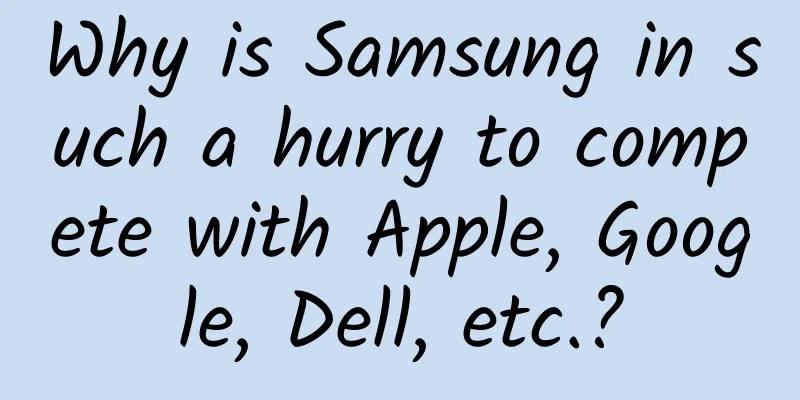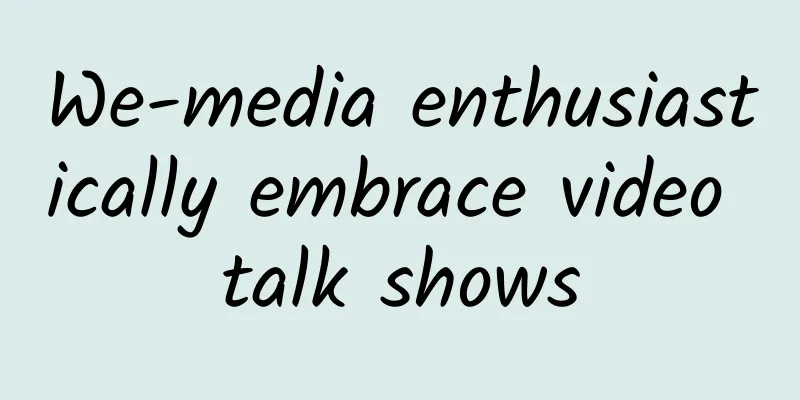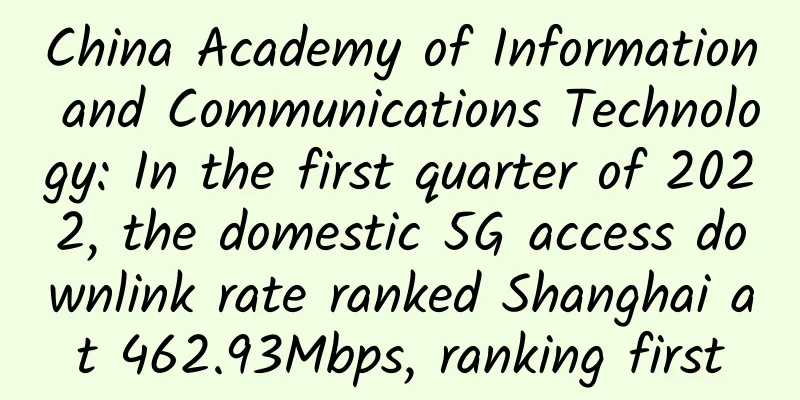Why is Samsung in such a hurry to compete with Apple, Google, Dell, etc.?

|
Today, this saying should also be regarded as a "perfect portrayal" of manufacturers such as "Google, Facebook, eBay, Dell and HP" watching the patent litigation war between Samsung and Apple. Recently, a coalition of the aforementioned companies appealed to the U.S. Court of Appeals for the Federal Circuit, hoping to reduce or completely abolish the compensation for Samsung's alleged infringement of Apple's patents. When asked about their reasons or basis, the companies said, "If this decision is allowed to stand, it will lead to absurd consequences. It will have a devastating impact on companies that spend billions of dollars each year on research and development of complex technologies and their components." They believe that if the original verdict is upheld, it may trigger a chain reaction that may affect the development of "useful modern technology" by various companies. This was originally a "private matter" between Samsung and Apple, but because of the external support from these manufacturers, it seems to be becoming a "public matter" for everyone. However, what is worrying is that although these companies have appealed to the court under the banner or name of "protecting innovation", the purpose or result of their appeal is actually to destroy innovation. They hope that the court "will not protect Apple's previous innovations and patents." So, the key question is, why did this alliance consisting of Google, Facebook, eBay, Dell and HP choose to side with Samsung and collectively protect Samsung's interests? What other considerations or plans are behind their apparent support? This highly-watched patent lawsuit war began in 2011. The cause was the Galaxy smartphone launched by Samsung in 2010 and the Galaxy Tab 10.1 tablet launched in early 2011. In Apple's view, both Samsung's smartphones and tablets were suspected of plagiarizing Apple's ideas and patents. As we all know, the iPhone, a smartphone launched by Apple in 2007, has indeed subverted the traditional mobile phone market. Both its appearance design and user experience have completely subverted the public's perception of the appearance and user experience of traditional mobile phones. It not only brought a huge impact to the mobile phone market at the time, but also accelerated the rapid shrinkage and demise of the feature phone market represented by Nokia. Back to the case of Apple suing Samsung for infringement, in terms of smartphones, Apple believes that the Galaxy S running Google's Android system illegally copied the design of the iPhone. In terms of tablets, Apple holds patents related to design elements such as rectangles or flat panels, and therefore believes that Samsung's Galaxy Tab series products also copied the design of Apple's iPad products. According to Apple's calculations at the time, Samsung should pay $24 in patent fees for each smartphone and $32 for each tablet. As a result, Apple filed a patent lawsuit against Samsung for product design infringement in the San Jose Federal Court in April 2011. Initially, the jury found that Samsung had infringed Apple's patents and recommended that the judge order Samsung to pay Apple $1.05 billion in damages. Later, in 2012, when the court made a formal ruling on Apple's case against Samsung for design infringement, it found that Samsung had infringed six of Apple's patents, including rounded rectangle design and application icon design, and ordered Samsung to pay Apple $930 million in damages. In fact, this amount has been reduced by nearly $100 million from the previous estimate, but it is still considered "huge". Such a huge amount of compensation shocked all manufacturers, including Samsung itself. Subsequently, Samsung appealed the verdict. In March 2013, the U.S. District Court judge believed that the compensation approved by the jury was too high and reduced it to $450.5 million. However, in November 2014, the jury added an additional $290.5 million in compensation to Apple. Although the final verdict of this case has not yet been issued, whether it is the $1 billion initially recommended by the jury, or the compressed or increased compensation during the period, hundreds of millions of dollars in compensation is not a small amount for Samsung. As Apple realized as early as 2010, the Open Handset Alliance (Open Handset Alliance) led by Google is essentially using the "open source strategy" to induce and force a series of companies to imitate the product design and strategy of the iPhone in order to achieve the global promotion of the Android smartphone operating system. In fact, in the past five years, Google's Android open source strategy has been absolutely successful. It has not only fostered giants like Samsung to compete with Apple in the global market, but also fostered the rise of emerging domestic smartphone manufacturers such as Xiaomi, Huawei, ZTE, Meizu, and Coolpad, which have continuously squeezed Apple's space in the domestic market. Obviously, the route competition in the field of smart devices today has become quite "clear-cut", either the Apple camp or the anti-Apple camp - the Android camp. Back to the alliance formed by Google, Facebook, eBay, Dell and HP, the reason why they support Samsung and Apple in the patent war is obviously a "temporary alliance with ulterior motives but in a coherent manner but at odds with each other." First of all, in terms of alliance composition, these manufacturers are more or less in competition with Apple. As the "leader" of the Android camp of smart device systems, it is understandable that Google lends a hand to Apple's IOS's suppression of its allies in the camp. Because on the surface, Samsung and Apple are competing for the market share of smart devices including smartphones, but in the final analysis, it is actually a fierce competition between Samsung and other companies as the vanguard and Apple for the right to speak on the smart device operating system. As for Dell and HP, as traditional IT manufacturers, why did they join the "anti-Apple" war? In the final analysis, Apple's layout of smart devices such as mobile phones, notebooks, computers, and pads poses a huge threat to these traditional IT manufacturers. More importantly, with smart devices now in vogue, these traditional IT vendors can either choose to follow the trend and join the smart device competition or choose to exit the market. In fact, Dell itself is also increasing its investment in smart Internet devices such as PCs, all-in-one computers, and tablet computers, while HP is eyeing the market for smart wearable devices such as smart watches. Therefore, the competition or friction between Dell, HP, and Apple is more acute than at any time in history. For application vendors such as Facebook and eBay, joining the "anti-Apple" camp is not only a way to return the favor to the Android camp, but also a way to strengthen negotiations or cooperation with Apple. After all, in Apple's smart devices, the app store is their most important channel to reach users. Once it is blocked, it will inevitably have a huge impact on them. Of course, compared with Facebook, eBay has been showing goodwill to Google for a long time. Previously, when the European Union found that Google was suspected of monopoly, eBay stood up to support Google. In addition, there were also rumors of investment and mergers between eBay and Google. According to the latest news, Google may be the "takeover" of eBay's PayPal assets. The complicated or inseparable relationship between eBay and Google makes it easy to understand why eBay stands on Google's side and follows Google in supporting Samsung. Secondly, from the perspective of alliance strategy, using fighting to promote peace should be their common goal or pursuit. Although it is said that "the enemy of my enemy is my friend", the "anti-Apple" camp led by Google is not "childhood sweethearts". In the Android camp, the number of smart device manufacturers is more concentrated and the competition is more fierce. Traditional IT manufacturers such as Dell and HP actually have direct competition with smart device manufacturers in the Android camp such as Samsung. This cooperative alliance based on competition is destined to be "short-lived and fragile", which also means that the resistance means of this "anti-Apple alliance" are too weak. For example, in the public call for Samsung to compete with Apple, these companies only expressed symbolic support for Samsung. These companies do not want to be involved in the lawsuit between Apple and Samsung. Therefore, judging from the demands of these alliance members with their own ulterior motives, "using fighting to promote peace" should be their unspoken common goal or pursuit. The reason why they are so concerned about Apple's lawsuit against Samsung for patent infringement is that the lawsuit may cause a conflict of interest for them based on the protection of appearance design. The anti-Apple alliance members believe that "the determination of damages for design patent infringement will have a wide-ranging impact on companies and the technology industry." On the one hand, this shows that major manufacturers have different "references" to Apple's appearance design, so they lack confidence. On the other hand, this also shows that in terms of appearance design, the alliance members of the "anti-Apple" camp lack independent innovation. Considering that the United States is a typical common law country, once the judgment in which Apple sued Samsung for hundreds of millions of dollars in damages officially takes effect and becomes an established fact, it will inevitably have a significant impact on the judgment in Apple's cases against other smart device manufacturers for design infringement. This is exactly what all the smart device manufacturers in the "anti-Apple" camp do not want to see, because the next "sucker" who signs a check to pay a huge compensation may be any one of them. Therefore, on the surface, the temporary alliance between Google, Facebook, eBay, Dell and HP to support Samsung and Apple in their patent lawsuit may seem a bit like "the emperor is not in a hurry, but the eunuchs are in a hurry", but in fact it should be regarded as more of "preparing for a rainy day to avoid future troubles." |
<<: Improve problem-solving skills through psychological knowledge
Recommend
The "Kappa duck" that lays eggs and produces milk is blocked by the dam
The platypus is probably one of the most bizarre ...
How much does it cost to attract investment for the Haikou Mechanical Equipment Mini Program?
Haikou Machinery Equipment Mini Program investmen...
Shanghai has recovered. Has the psychological crisis under the lockdown also recovered?
From 00:00 on June 1, 2022, Shanghai fully restor...
How do senior designers use the “Pareto Principle” to make design decisions?
Editor's note : This article is from the desi...
Mengmanren - Tutorial on making short videos of interesting facts animations on mobile phones, even beginners can do it
Mengmanren - Tutorial on making short videos of i...
The first "ice-free" summer in the Arctic may come early, 10 years earlier than expected丨Tech Weekly
Compiled by Zhou Shuyi GPT-4's strongest riva...
Nearly 100 executives changed in half a year. When will the intensive personnel adjustments in the automotive industry end?
In recent years, as the scale of China's auto...
Ammonia treatment administrator: Why can this battery save fish lives?
Author: Duan Yuechu Ammonia is a toxic compound t...
How to build various user incentive systems?
User operation is to add a suitable user incentiv...
Is alkaline water healthier? The "acid-base body theory" is completely pseudoscience!
I'm Busy, Quick Reading Edition The "aci...
Snail Chinese Language "Snail Primary School Lower, Middle and Upper Grade Composition"
Resource introduction of Snail Chinese Language &q...
How will WeChat, Tik Tok, and Weibo play in the second half of the Internet?
In my opinion, content operations must grow toget...
Industrial Application and Trends of IP in 2020
Under the sudden outbreak of the epidemic, many b...
What kind of value is meaningful to users?
Actual value cannot bring users. What users care ...









